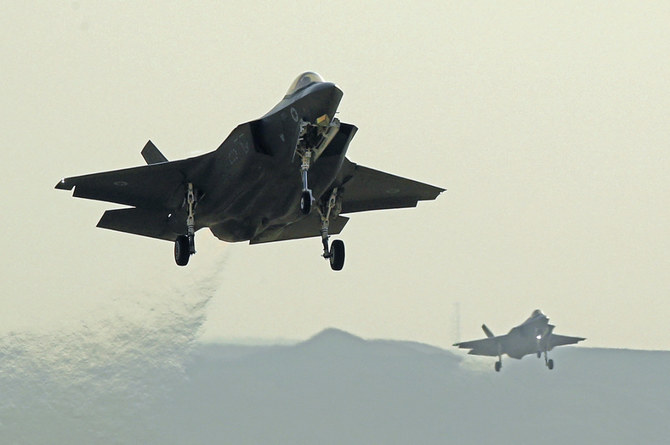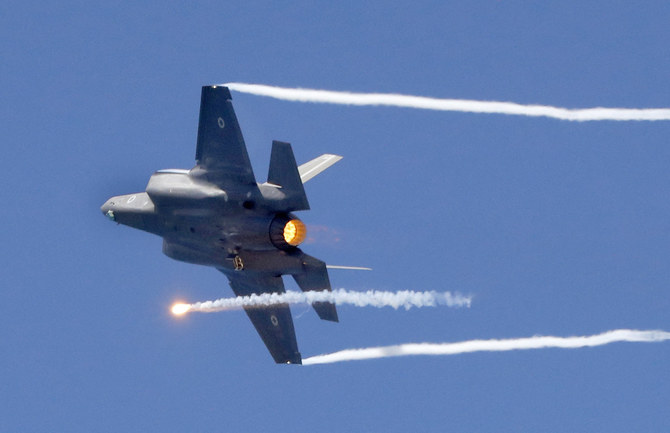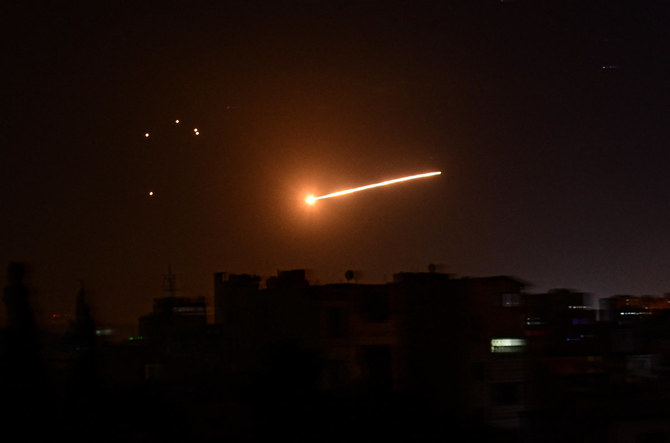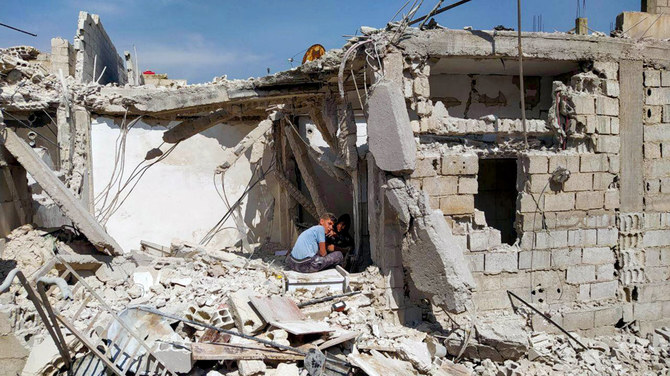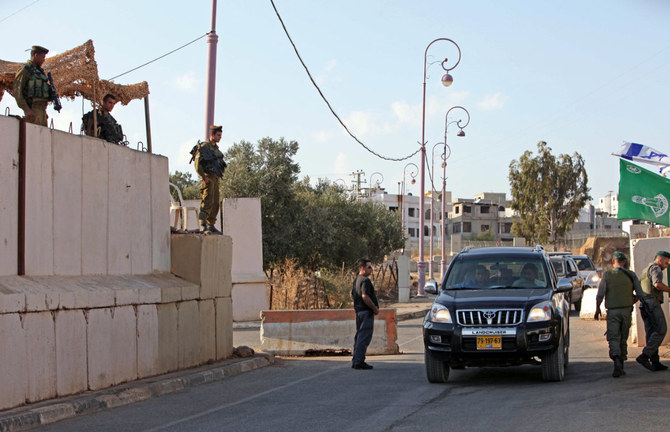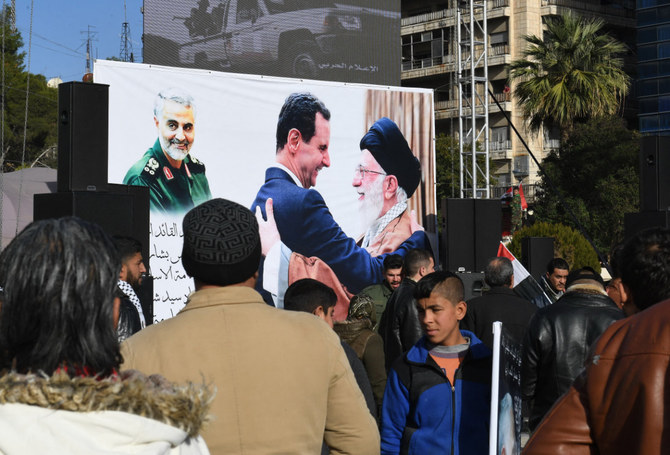LONDON: Israel has launched hundreds of strikes against Iran and its allied proxies inside Syria since the country’s descent into civil war over a decade ago, with officials in Tel Aviv making it clear they will refuse to tolerate any Iranian entrenchment along their northern border.
Israeli warplanes have repeatedly attacked Iran-linked facilities and weapons convoys destined for Tehran’s Hezbollah proxies in Lebanon. On May 5, Israeli strikes in the Syrian provinces of Latakia and Hama claimed the lives of at least eight individuals on the payroll of Iran’s Islamic Revolutionary Guards Corps (IRGC).
Despite the persistent bombardment and loss of personnel, experts say the IRGC is unlikely to strike back directly or relinquish its military presence any time soon. The reason: Syria is simply too precious a strategic prize for Tehran to give up.
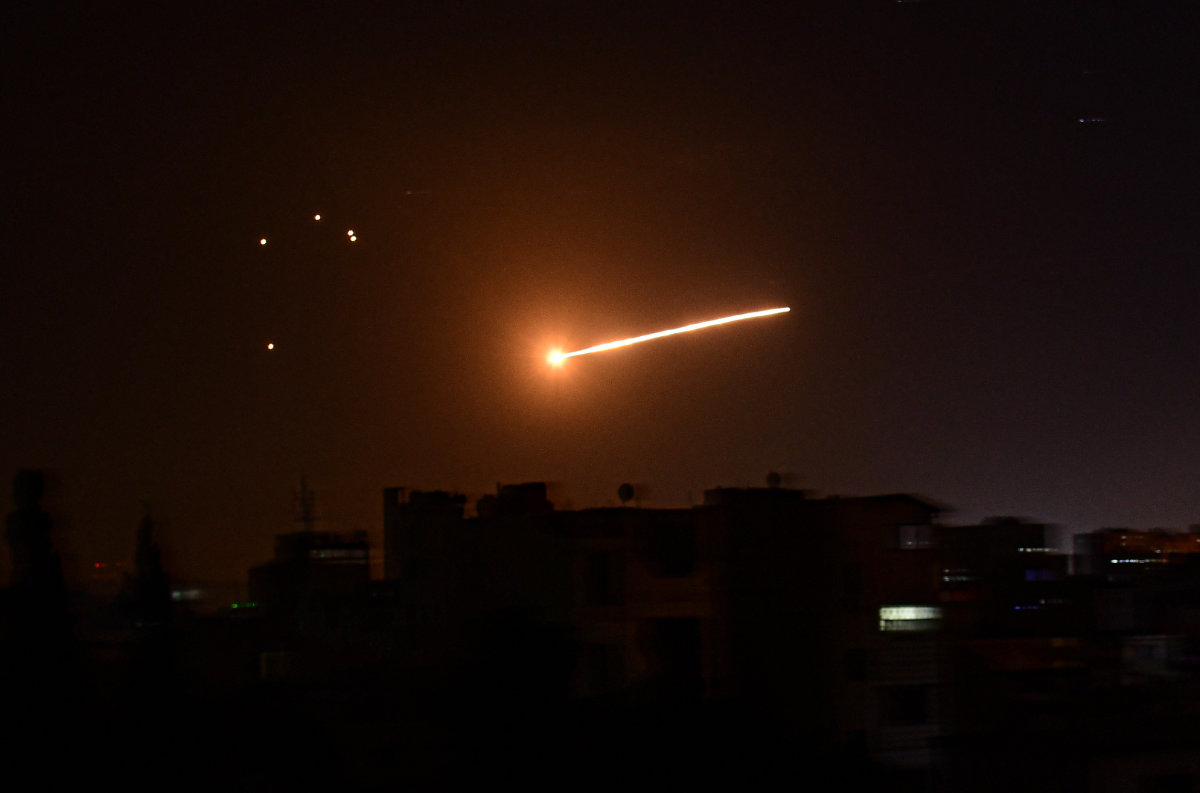
A handout picture released by the official Syrian Arab News Agency (SANA) on Feb. 24, 2020, reportedly shows Syrian air defende intercepting an Israeli missile in the sky over Damascus. (AFP)
“Both Israel and Iran believe that they have vital national security interests at stake in Syria,” Chris Bolan, professor of Middle East Security Studies at the US Army War College, told Arab News.
The Iran-backed Lebanese militia Hezbollah, which intervened early in the Syrian civil war in support of the Assad regime, is the crux of Israel’s national security headache in Syria, said Bolan.
“Israeli concerns with Iran’s support to Hezbollah are enduring and will continue regardless of the outcome of (nuclear) negotiations in Vienna. These concerns have only been exacerbated with Iran’s growing military presence and intervention on behalf of Syrian President Assad since the onset of the civil war,” he said.
“Israel will continue to take whatever actions are necessary — including airstrikes — to both minimize the threat posed by Hezbollah’s growing, sophisticated arsenal of missiles and ensure that Iran’s military presence in Syria does not pose an immediate threat to Israel.
“Similarly, Iranian leaders view their support to Hezbollah as an essential element of Iran’s national security strategy of forward defense. A well-equipped Hezbollah that poses a significant threat to Israel serves as Tehran’s most potent deterrent against large-scale Israeli or Western strikes.”
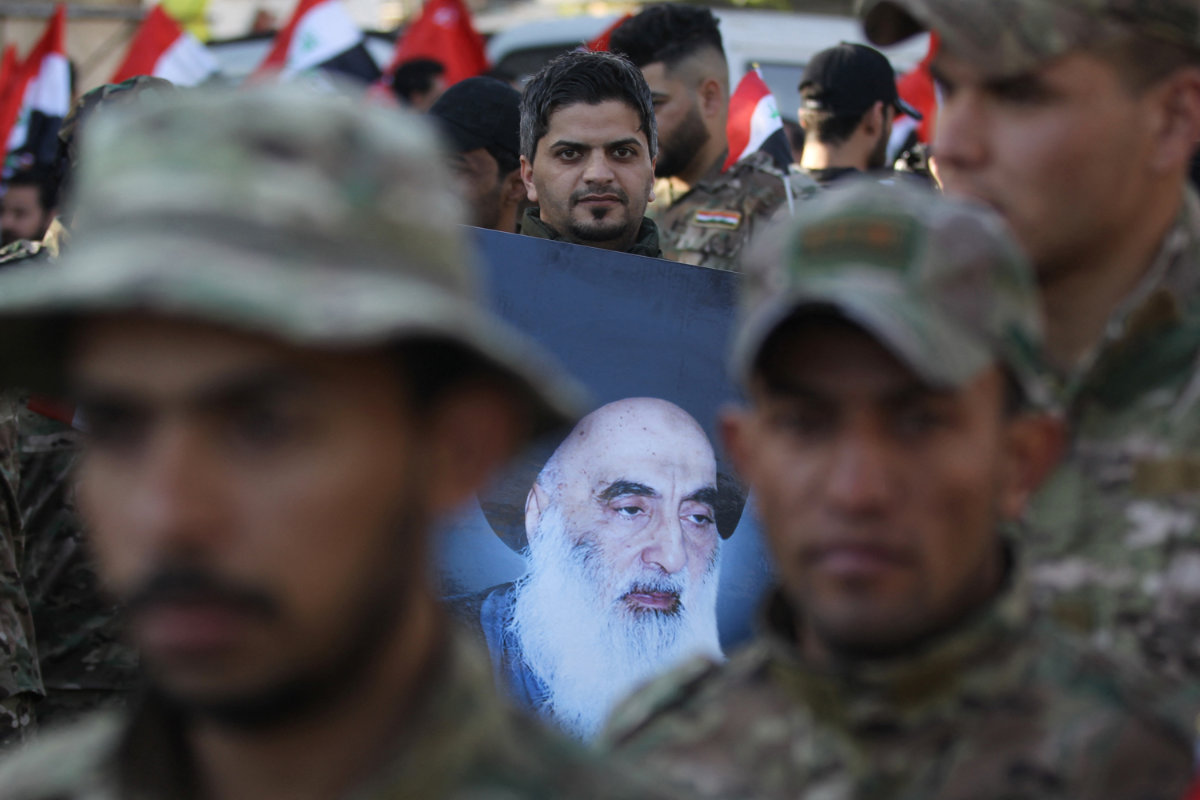
Members of Hashed al-Shaabi, an Iran-allied paramilitary force in Iraq, holding a funeral procession in Baghdad for fellow comrades on December 31, 2019. (AFP file photo)
Alongside Hezbollah, the IRGC has nurtured, trained and armed a host of other militia groups across Syria. By shipping in fighters from Lebanon, Afghanistan, Iraq and even Pakistan, Tehran has created its own army of Shiite mercenaries in Syria.
Still, on Syria’s front lines and at the mercy of Israeli warplanes, these foreign fighters have paid a heavy price for their allegiance to Tehran.
According to the Syrian Observatory for Human Rights (SOHR), between January 2018, when Israel’s involvement in Syria first escalated, and January 2020, almost 500 Iran-backed fighters were directly killed by Israeli airstrikes.
That figure includes “228 militiamen of the Lebanese Hezbollah and Iranian-backed militias” and “171 members of the Iranian forces and Iranian Revolutionary Guards Corps,” as well as nearly 100 Syrian pro-government militiamen.
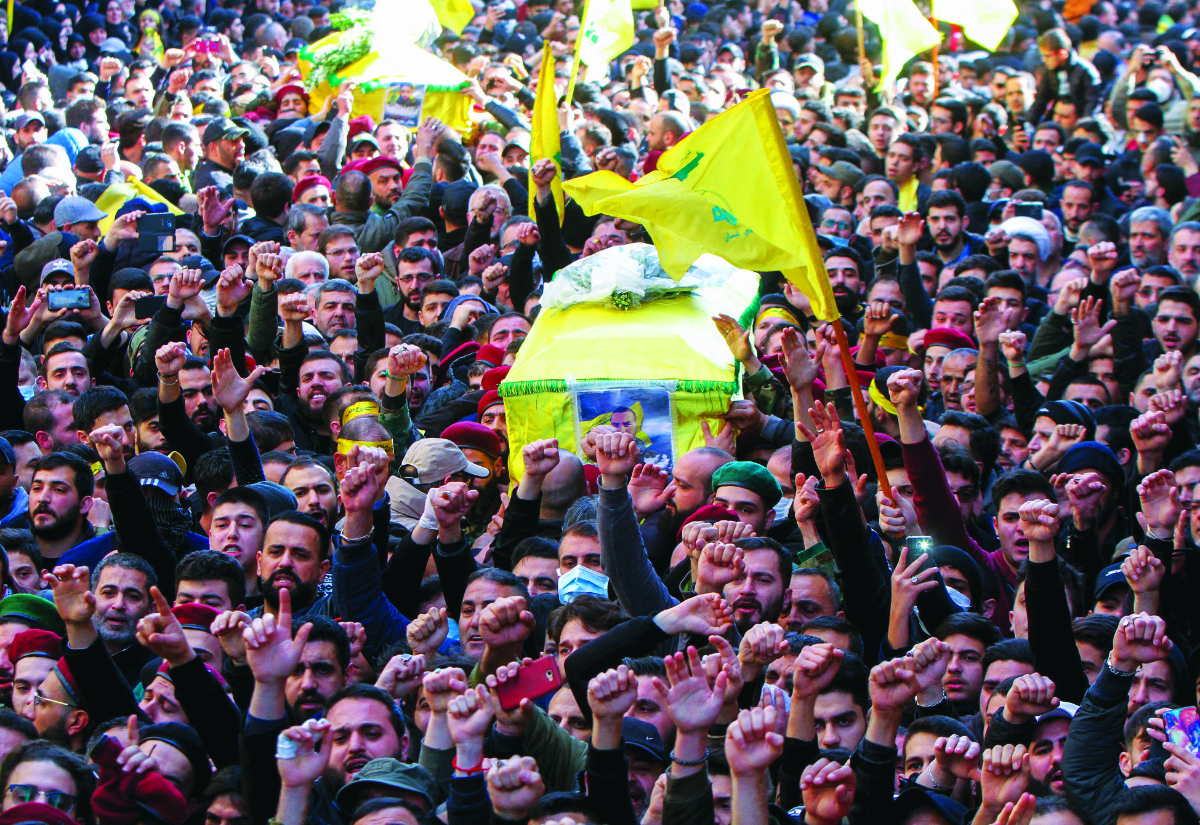
Hezbollah supporters carry coffins of their fighters killed in Syria, during their funeral procession in Lebanon on March 1, 2020. (AFP)
Thousands more have died on the front lines in direct clashes with rebels and Daesh militants.
According to SOHR, the May 5 strikes alone claimed eight lives: Five Iranians and Afghans, a Syrian and two others of “non-Syrian” nationality.
“The death toll is expected to rise further as the attack left many members injured, some seriously, including Lebanese militiamen and officers,” it said. It is not yet clear whether any members of Hezbollah were killed or injured.
IN NUMBER
500+
Fighters killed in Israeli strikes in Syria in Jan. 2018-Jan. 2020.
According to Matthew Levitt, director of the Washington Institute’s program on counterterrorism and intelligence, Hezbollah is unlikely to risk striking back against Israel in spite of these heavy losses.
“Hezbollah has a clear track record over the past few years of only responding to Israeli strikes in Syria when those strikes kill Hezbollah operatives,” Levitt told Arab News.
“So long as Israeli strikes only hit Hezbollah weapons shipments or infrastructure, the group is unlikely to respond against Israel directly for fear of igniting a cross-border conflict that it currently wants to avoid.
“Hezbollah prefers to avoid fighting wars on two different fronts at once (Syria and Israel), and is also sensitive about dragging Lebanon into a war with Israel that the vast majority of Lebanese don’t want, at a time when Lebanon is experiencing severe economic and political instability.”
Instead, in the face of escalating losses, Hezbollah leader Hassan Nasrallah has resorted to fiery rhetoric and lofty promises.
Just days after the latest strikes, Iranian state-backed media quoted Nasrallah as saying: “The ‘Israelis’ are concerned today due to the growing capabilities of the Axis of Resistance. The ‘Israeli’ entity is in trouble and its wall is cracking; there is a leadership crisis and this is a sign of collapse and weakness.”
However Hezbollah chooses to dress things up, Israel’s air campaign has not only caused hundreds of casualties but also succeeded in its stated objective of preventing widespread Iranian entrenchment in Syria, particularly in the country’s south.
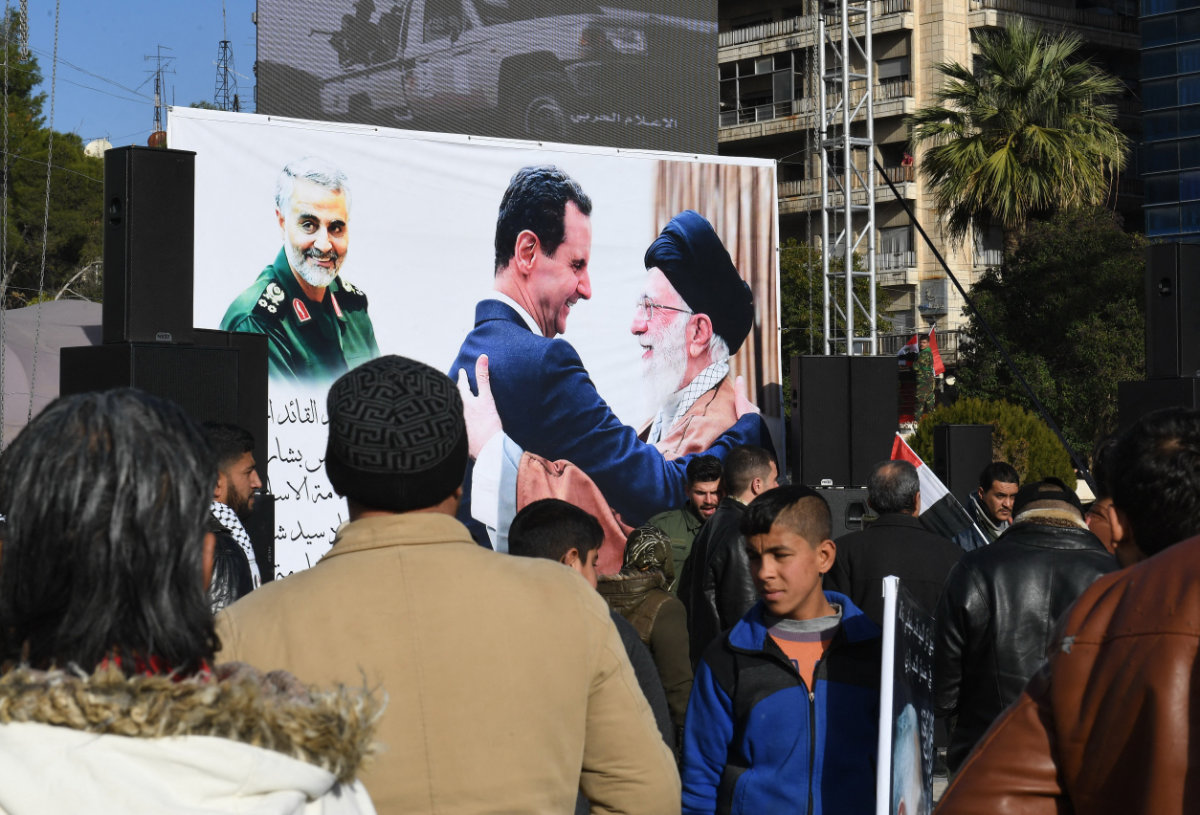
Syrian protesters rally in front of a poster of Iran’s Supreme Leader Ayatollah Ali Khamenei, Syrian President Bashar Assad and the late military commander Qassem Soleimani. (AFP)
“The Israeli airstrikes against Iranian-backed groups have been quite effective in destroying and disrupting key targets in Syria,” said Johan Obdola, founder of the International Organization for Security and Intelligence.
In the course of the Syrian war, Israel has bombed secret weapons depots in major cities, key infrastructure including highways, as well as hundreds of shipments of missiles and other arms earmarked for Iran’s allies.
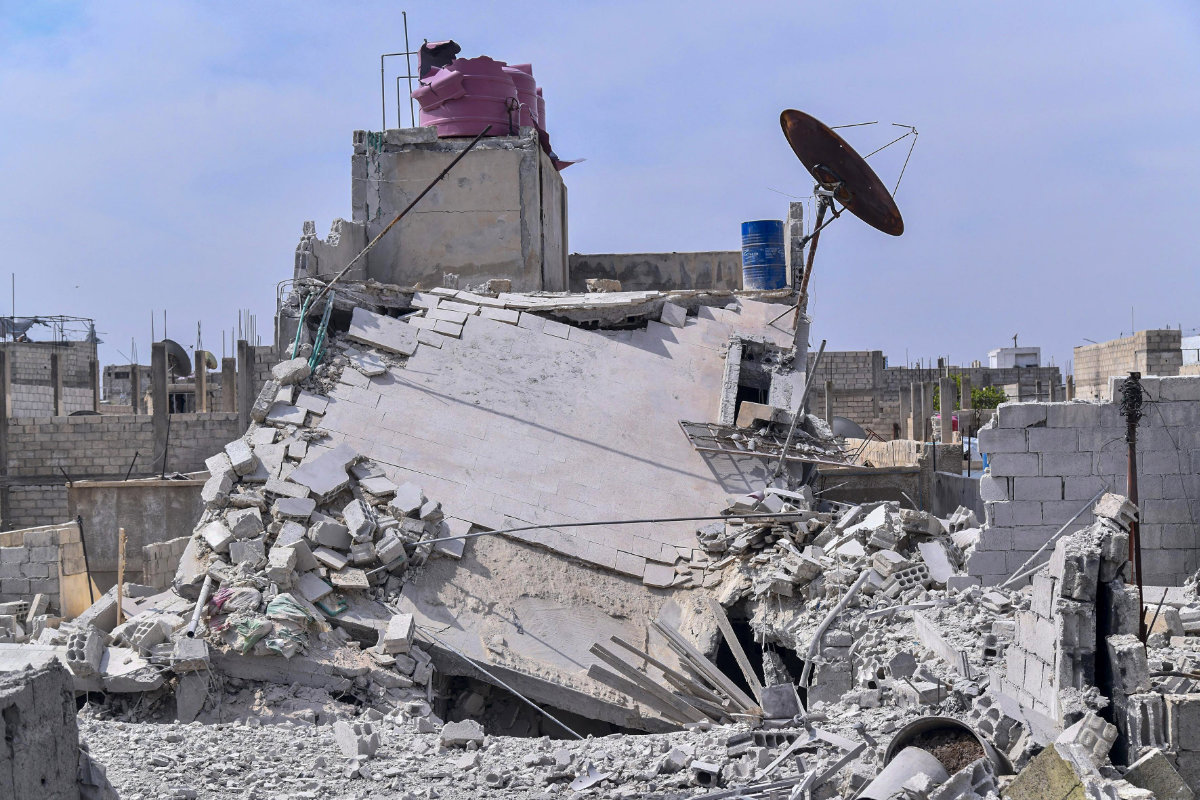
A handout picture released by the official Syrian Arab News Agency (SANA) on April 27, 2020 shows a damaged building in Damascus after reported Israeli air strikes. (AFP)
“These constant airstrikes have been severely hitting Iran’s smuggling operations of advanced weapons, including missiles to Hezbollah in Syria, and also including warehouses and pre-existing underground compounds that serve as pipelines for military components,” Obdola said.
That said, Israel cannot afford to rest on its laurels, according to experts. If the talks should falter between Washington and Tehran over Iran’s nuclear program, Bolan warns, the standoff in Syria between Iran and Israel could become even more volatile.
“The outcome of negotiations is not likely to significantly alter the basic calculations of entrenched Israeli or Iranian interests in Syria,” said Bolan.
“Nevertheless, failed negotiations in Vienna will likely add to the already mounting tensions between Israel and Iran inside Syria and thereby increase the prospect of intended or unintended escalation.”
Obdola, for his part, says Iran and its allies are likely to capitalize on the talks and any sanctions relief achieved as an opportunity to strengthen their position against Israel.
“The nuclear talks represent to Iran an opportunity to move forward with its plan against Israel,” he said.
An end to sanctions on Iran “would facilitate Iran and Hezbollah in its expansion not only in Syria, but in other countries around the world where they have been implementing an aggressive military, militia and terrorist network.”
_______________________
• Twitter: @CHamillStewart


